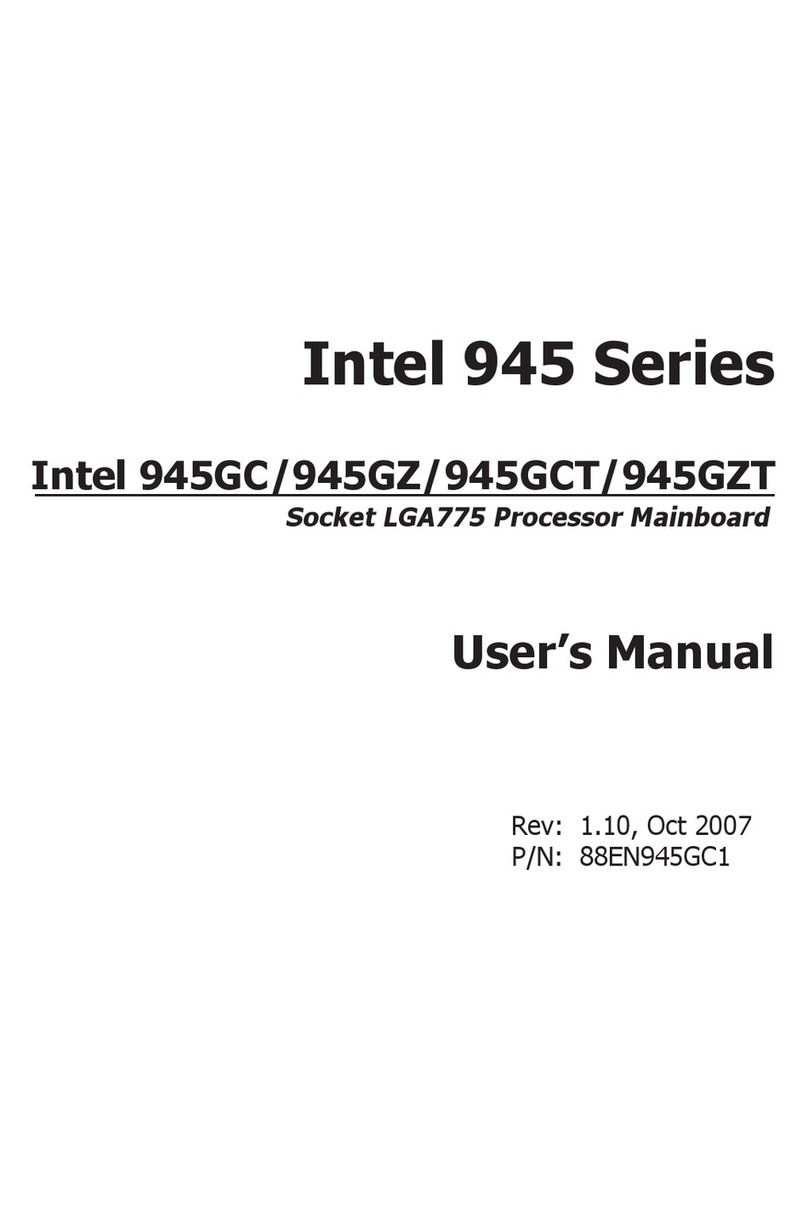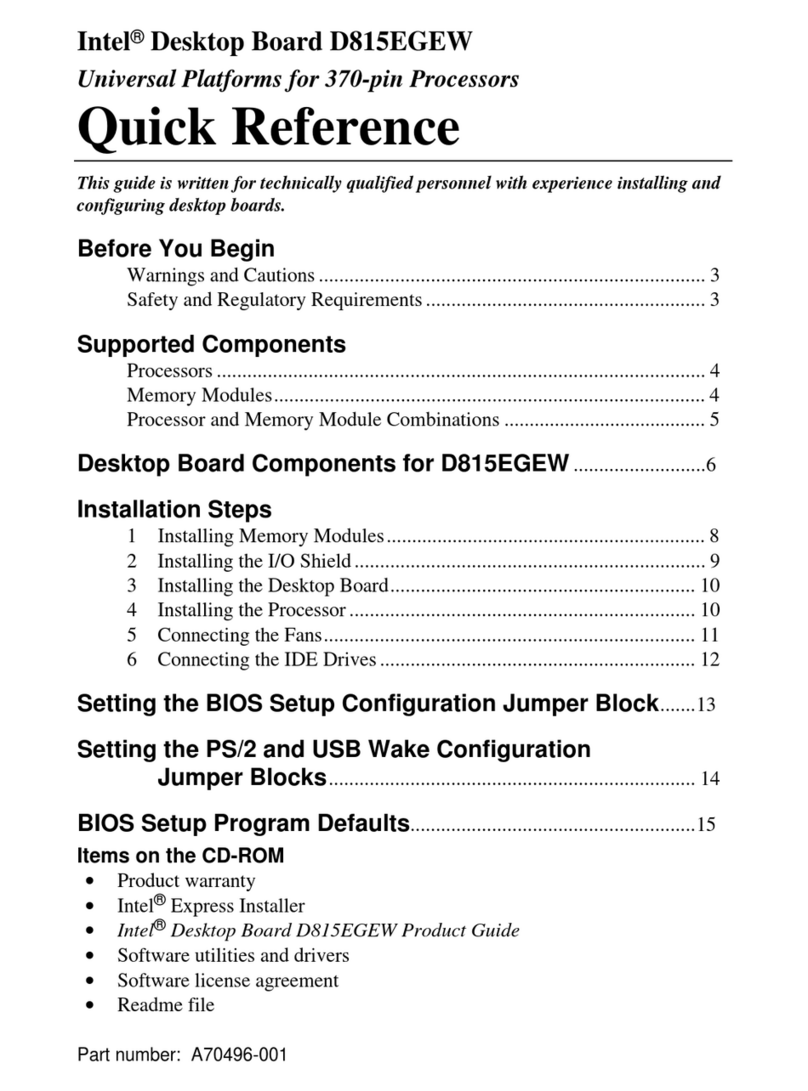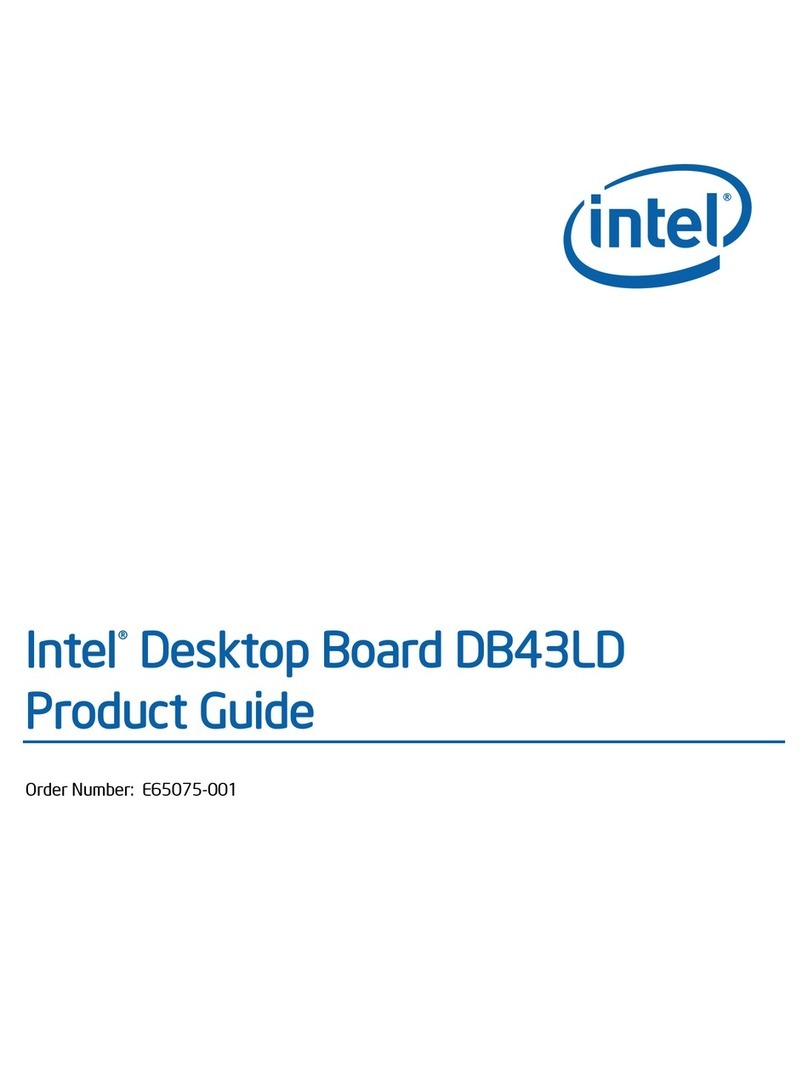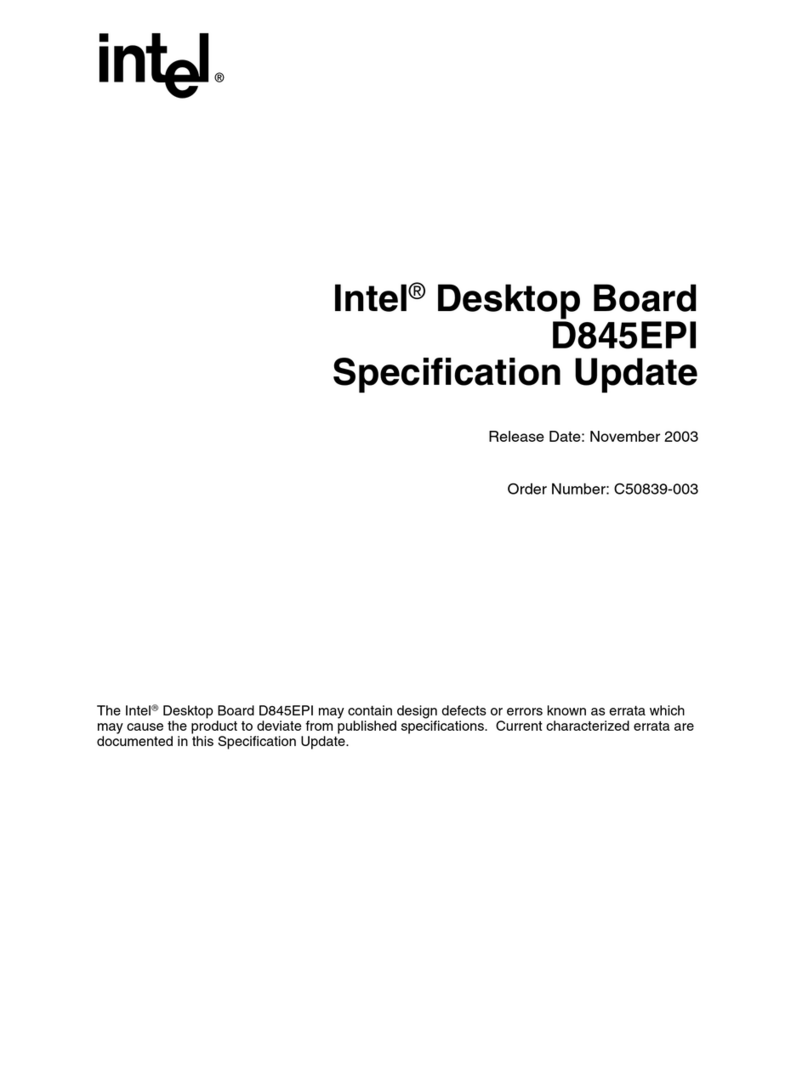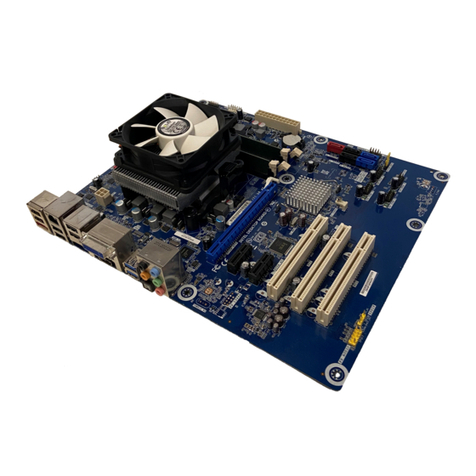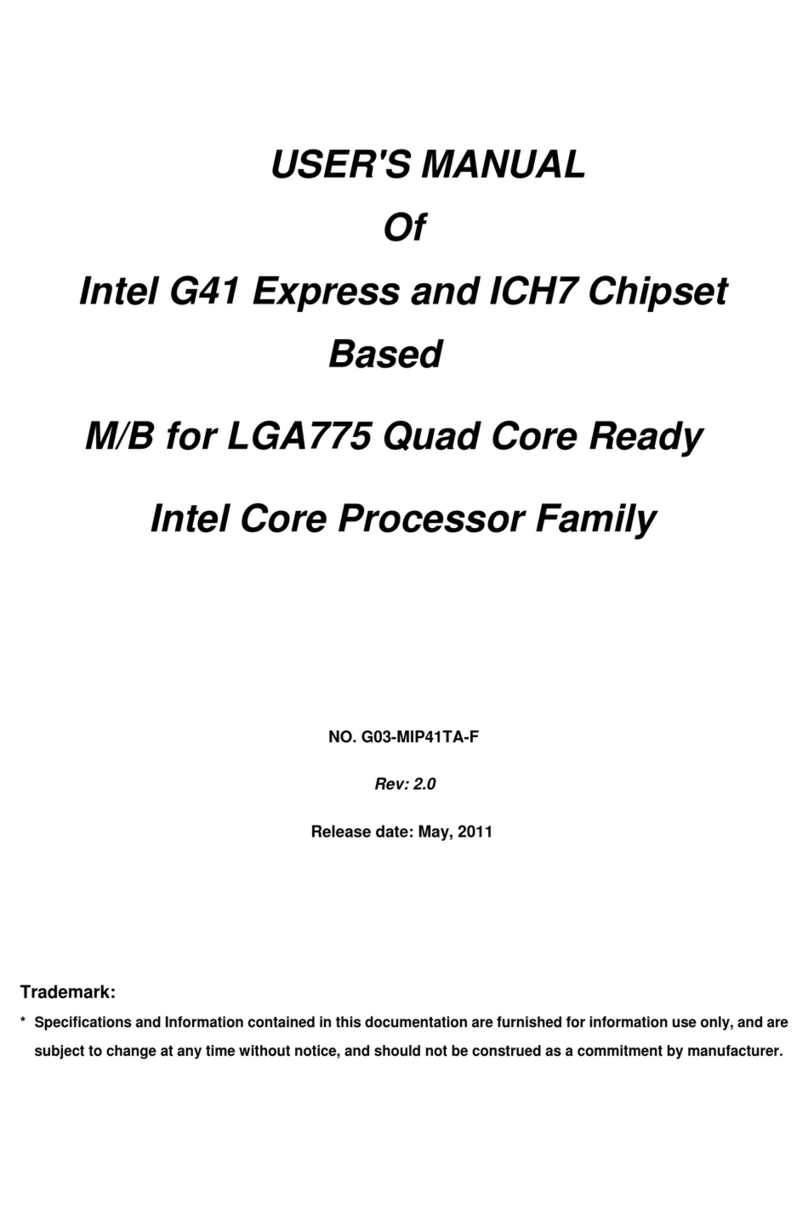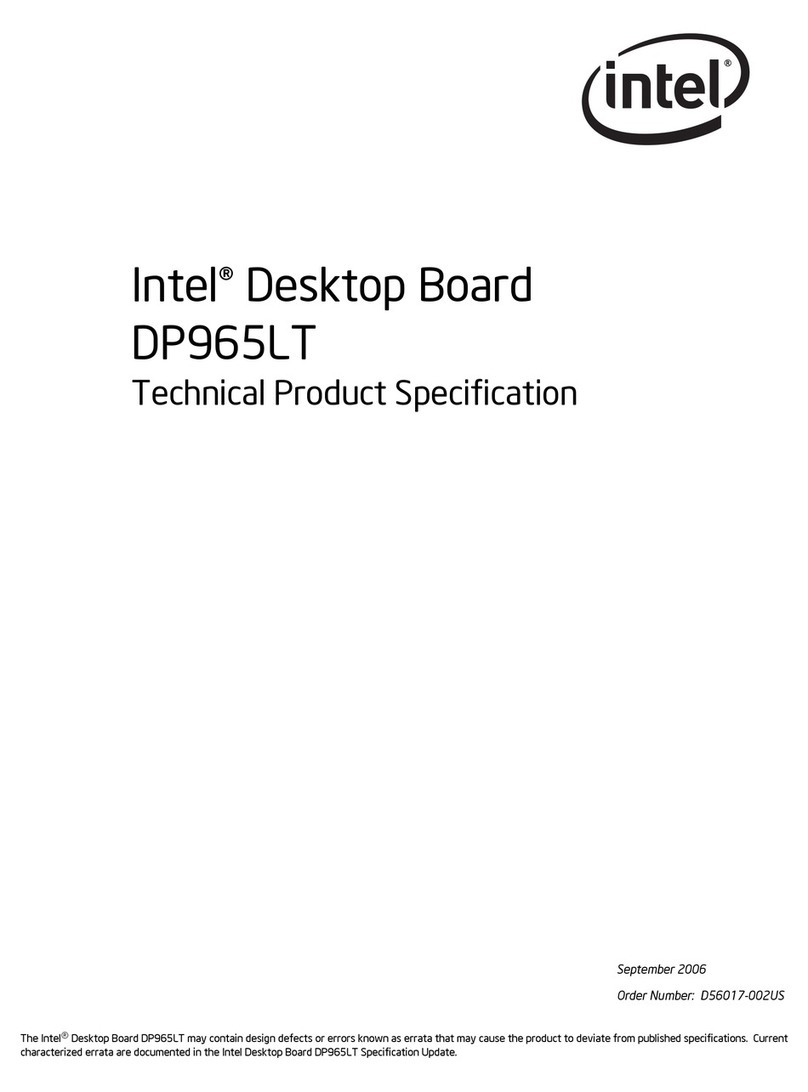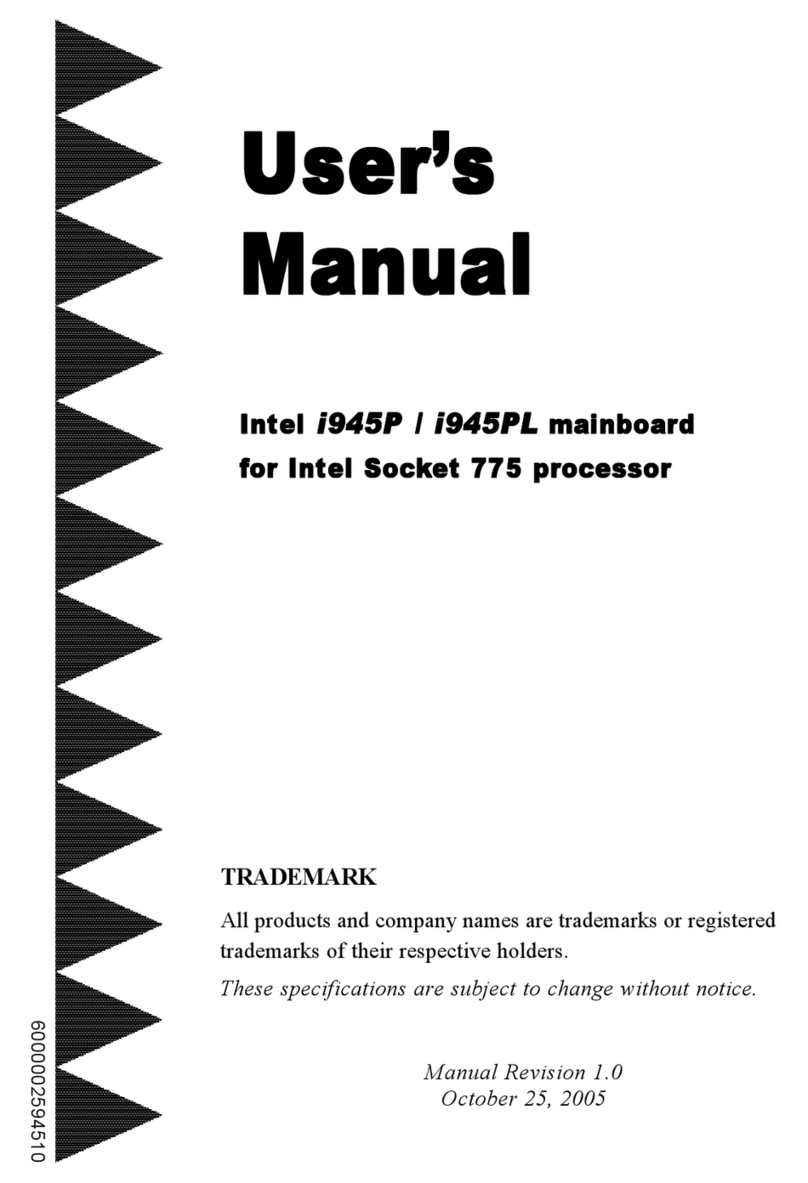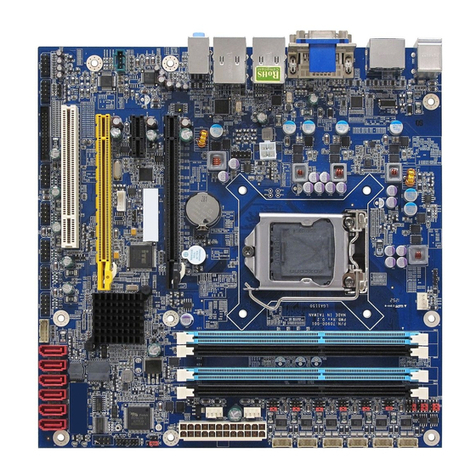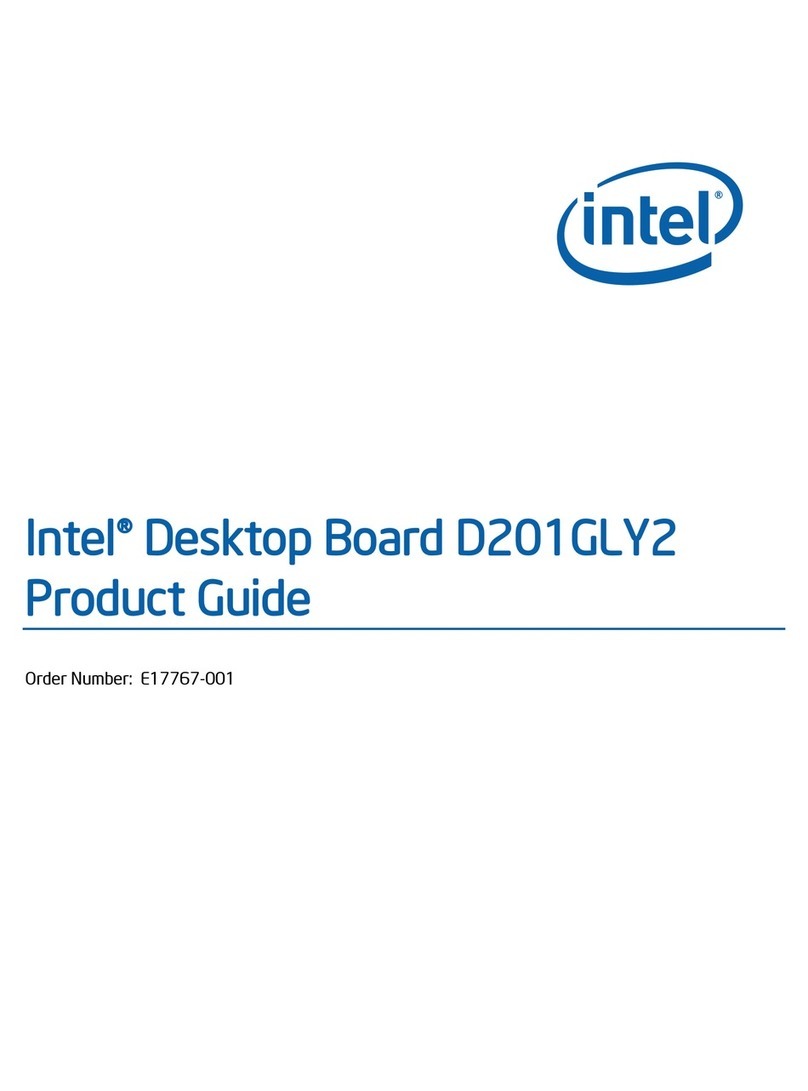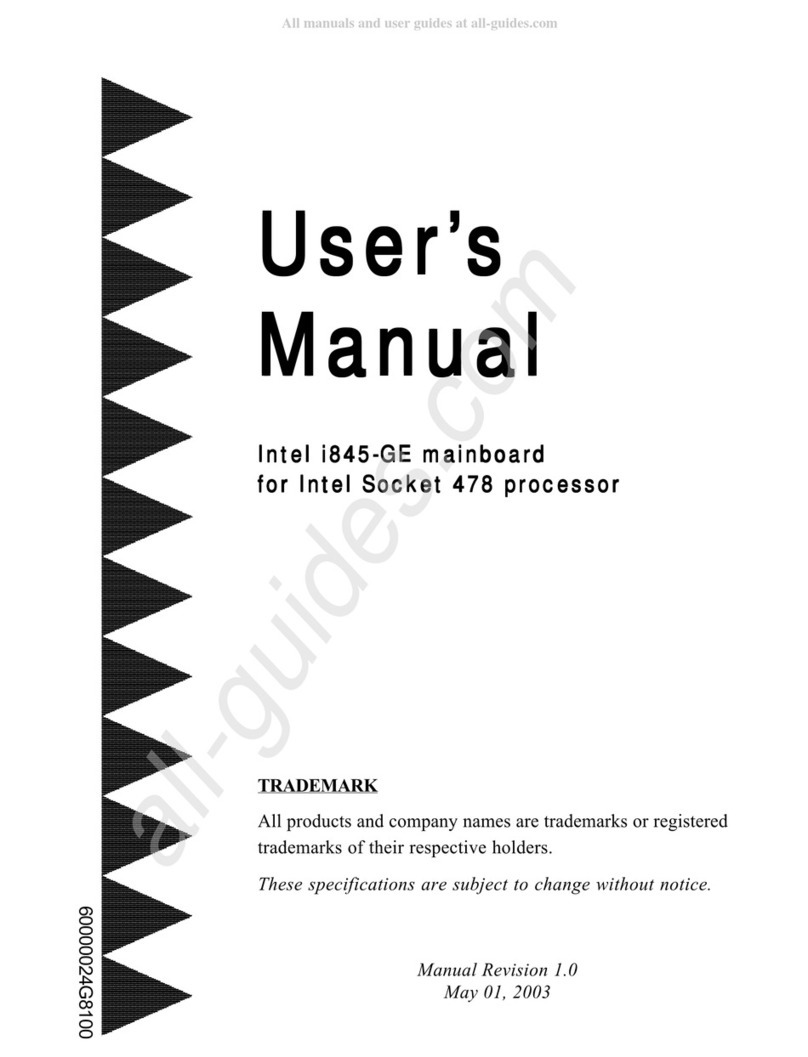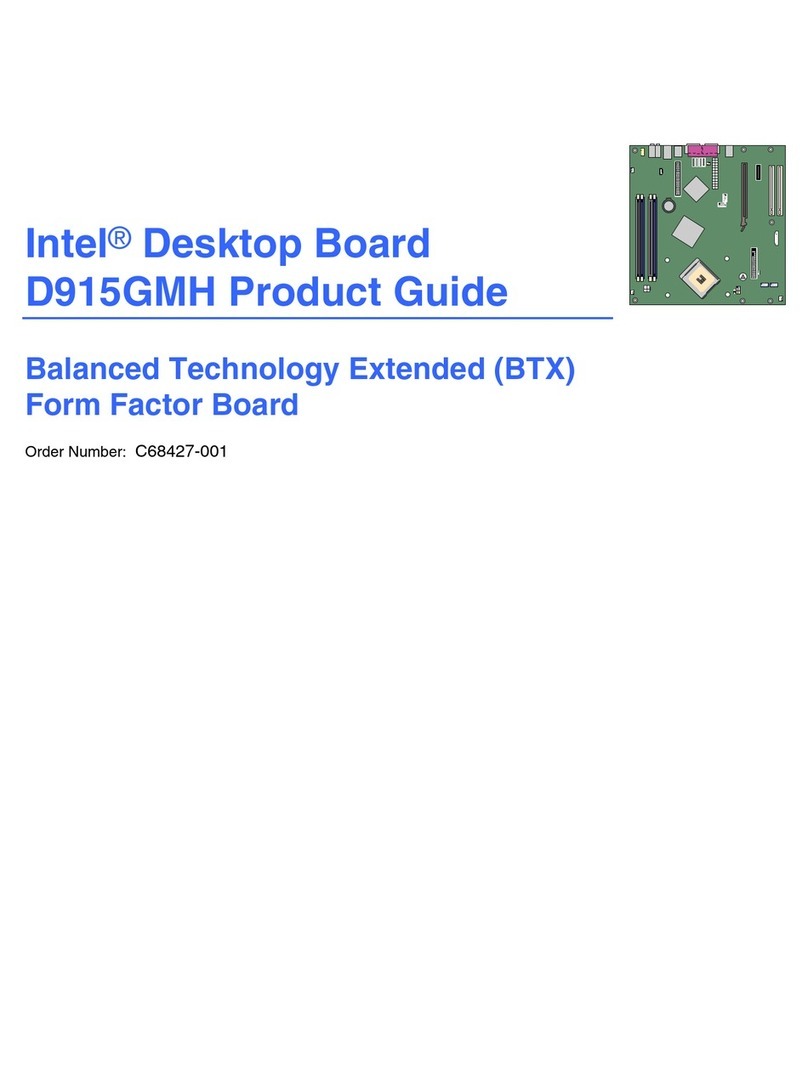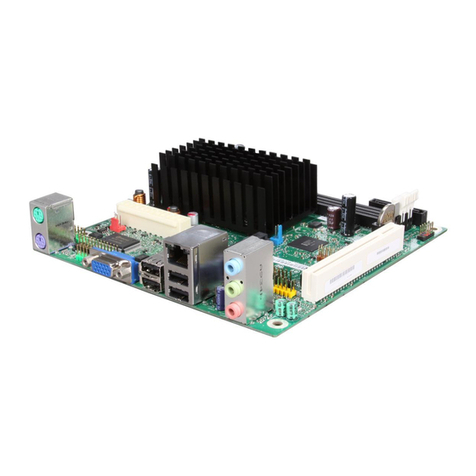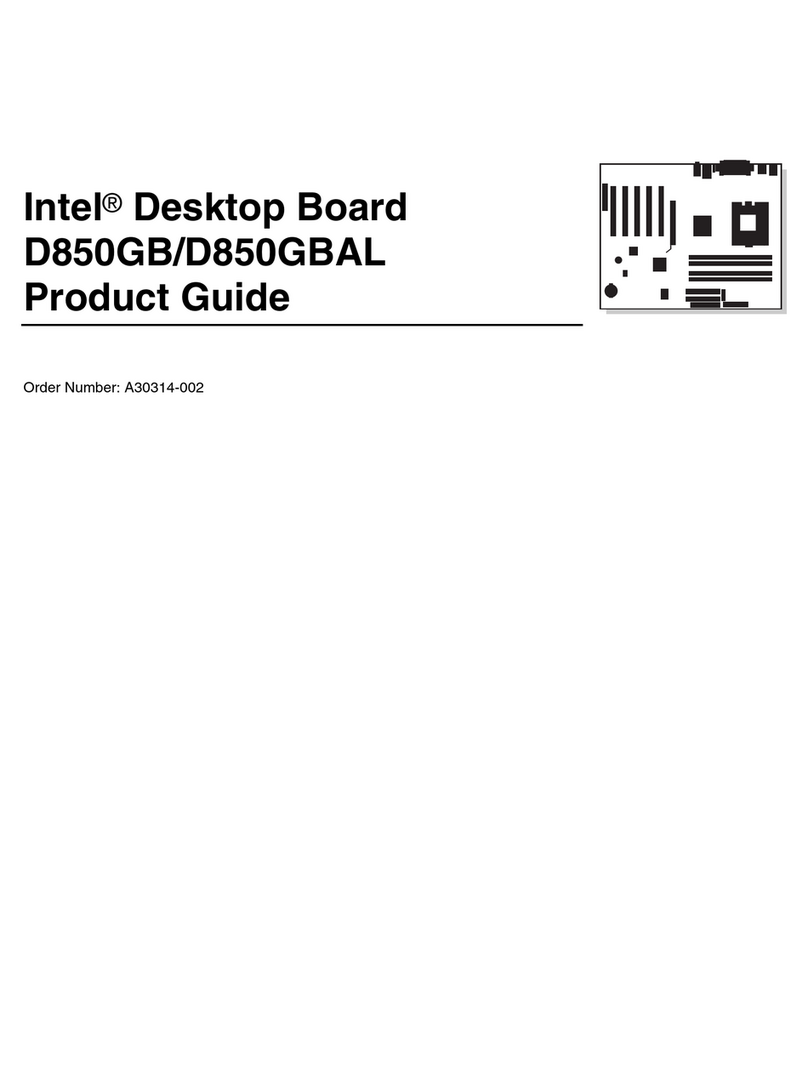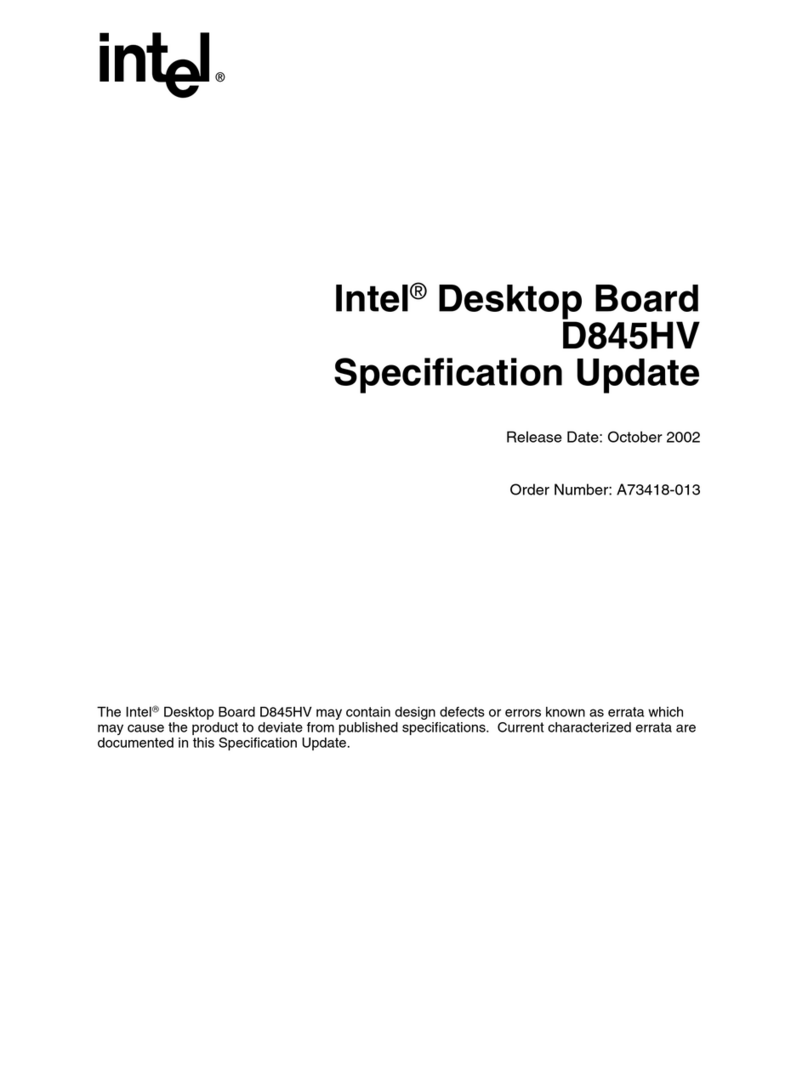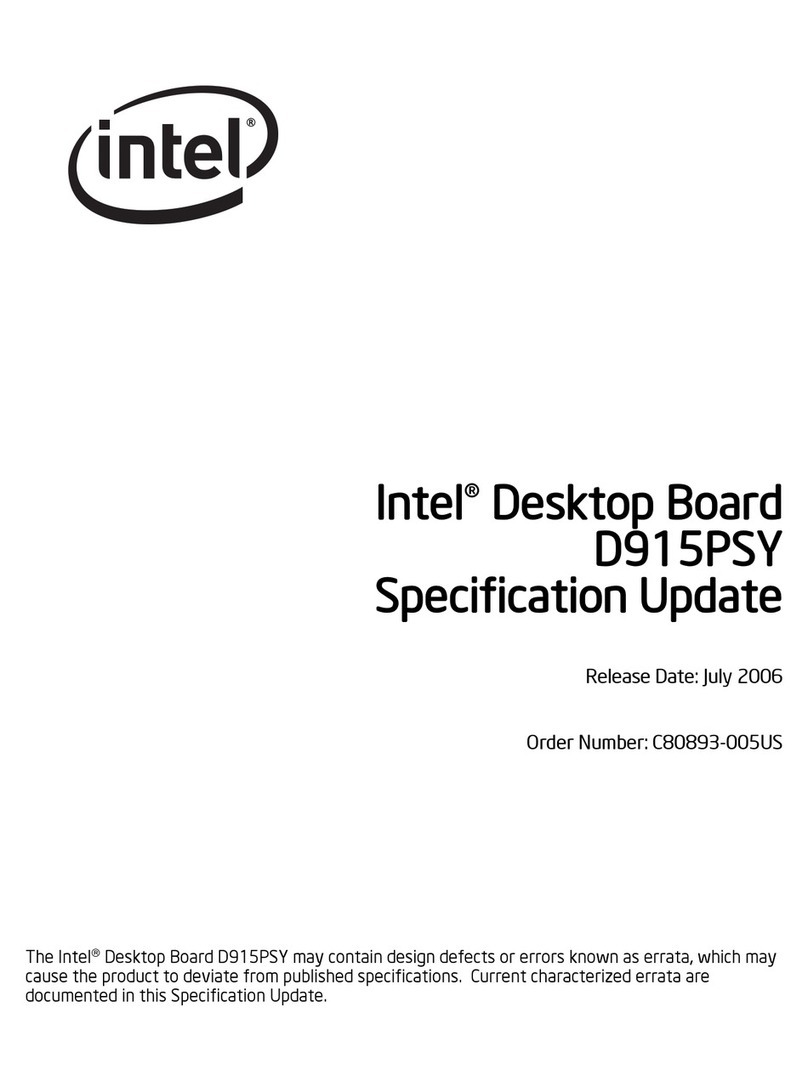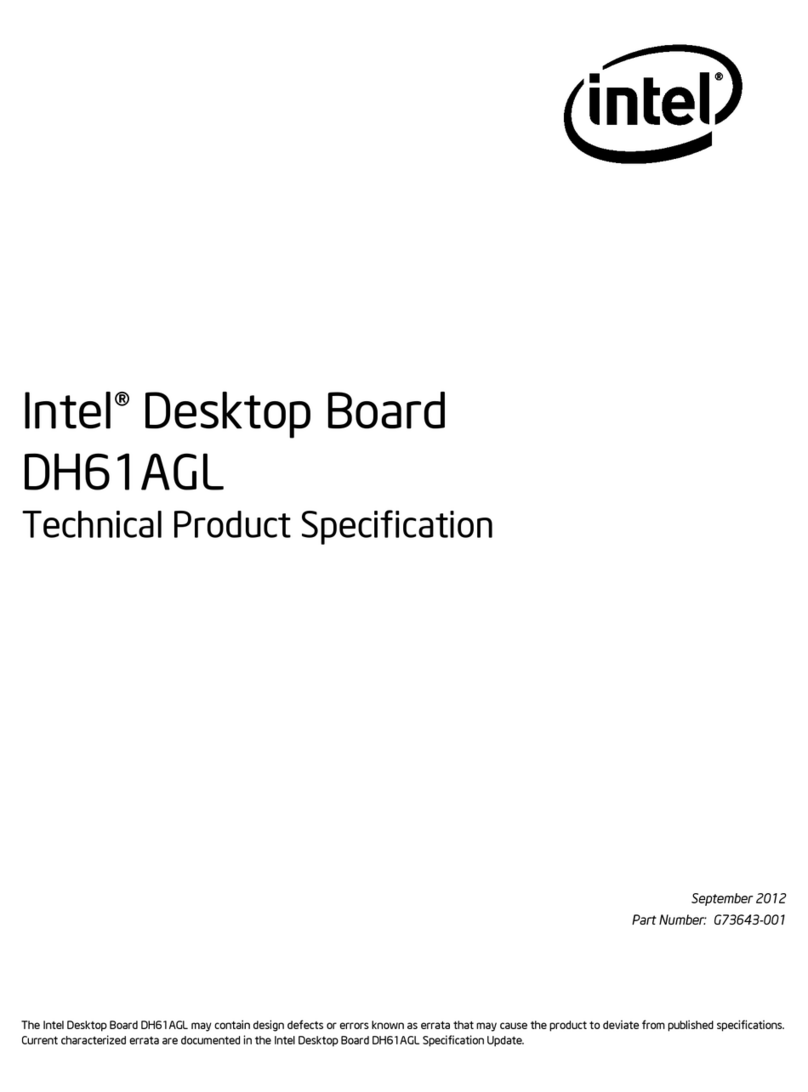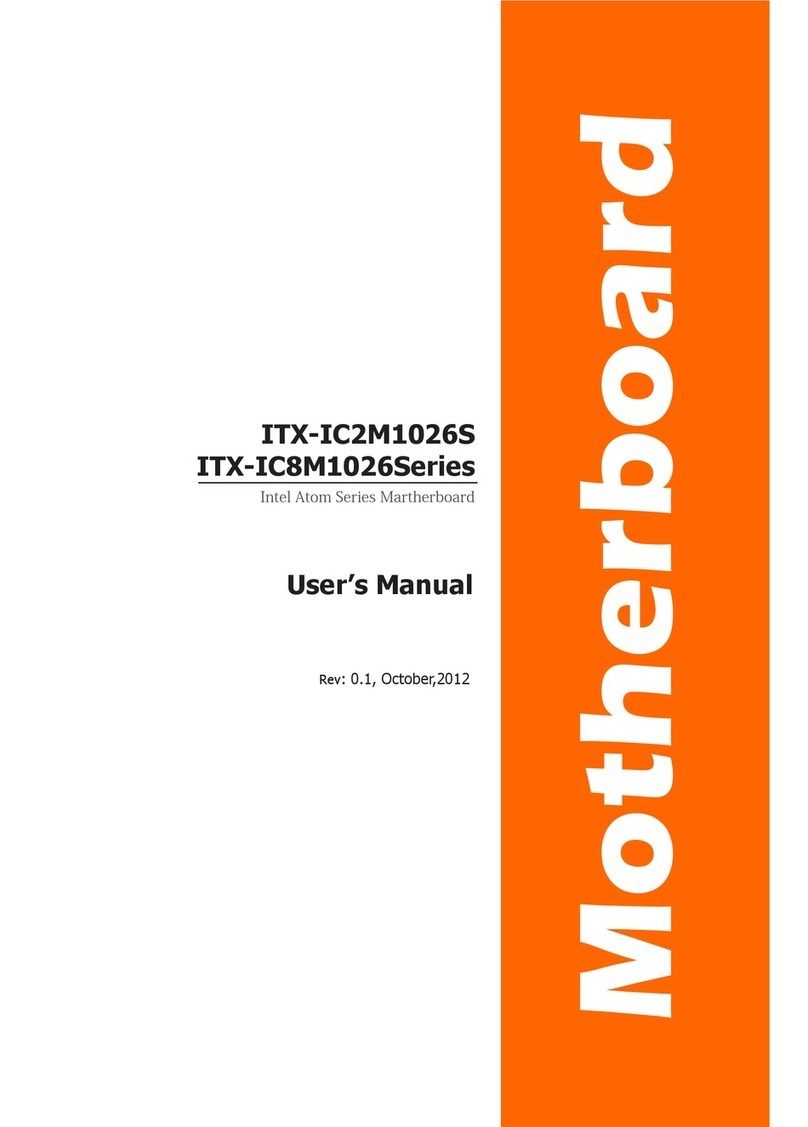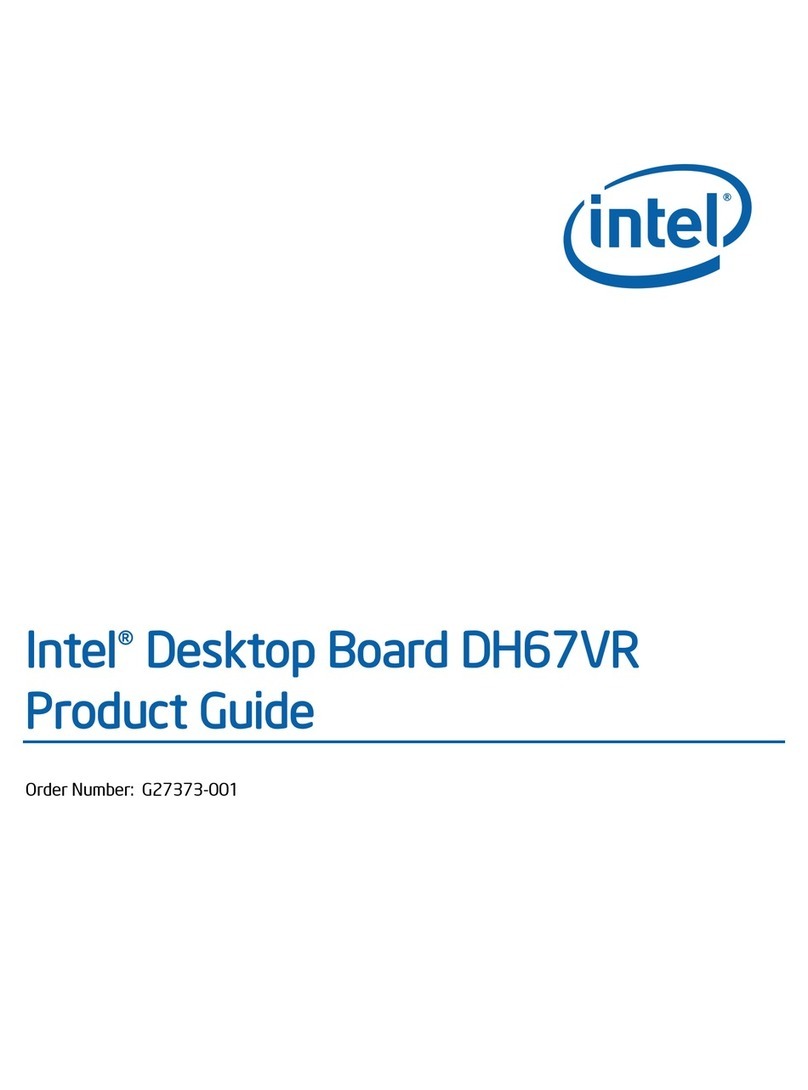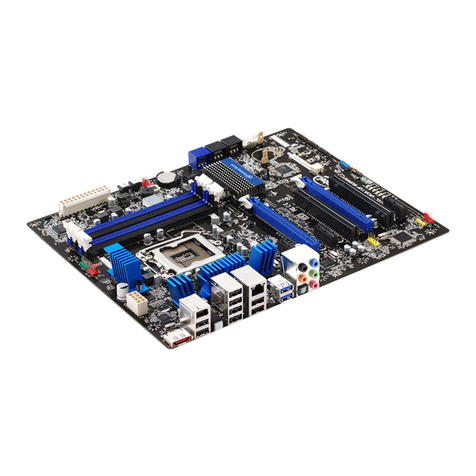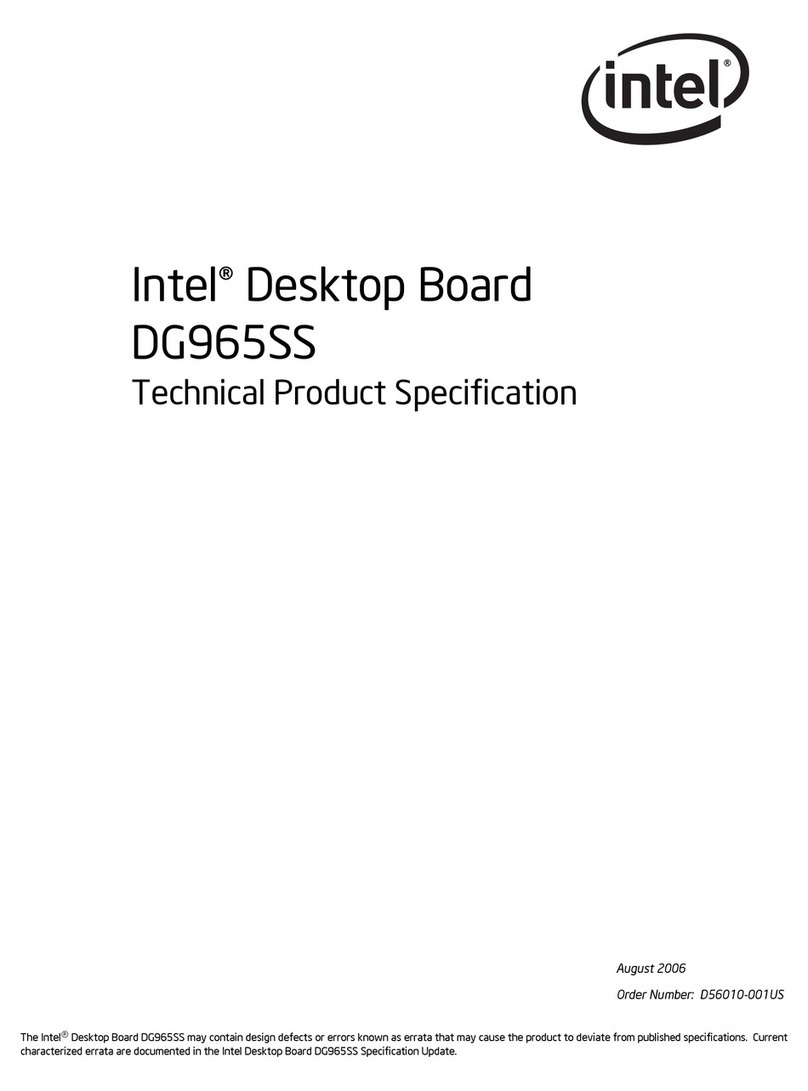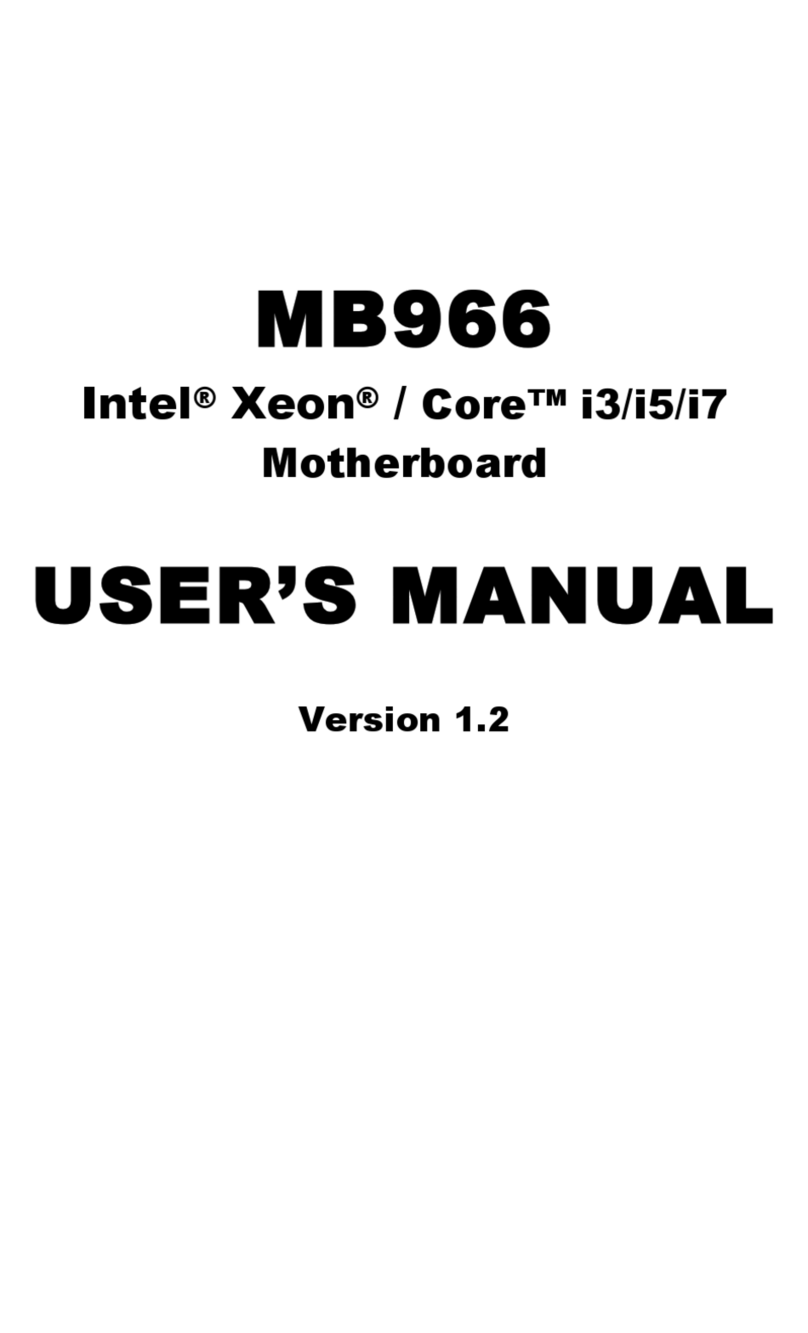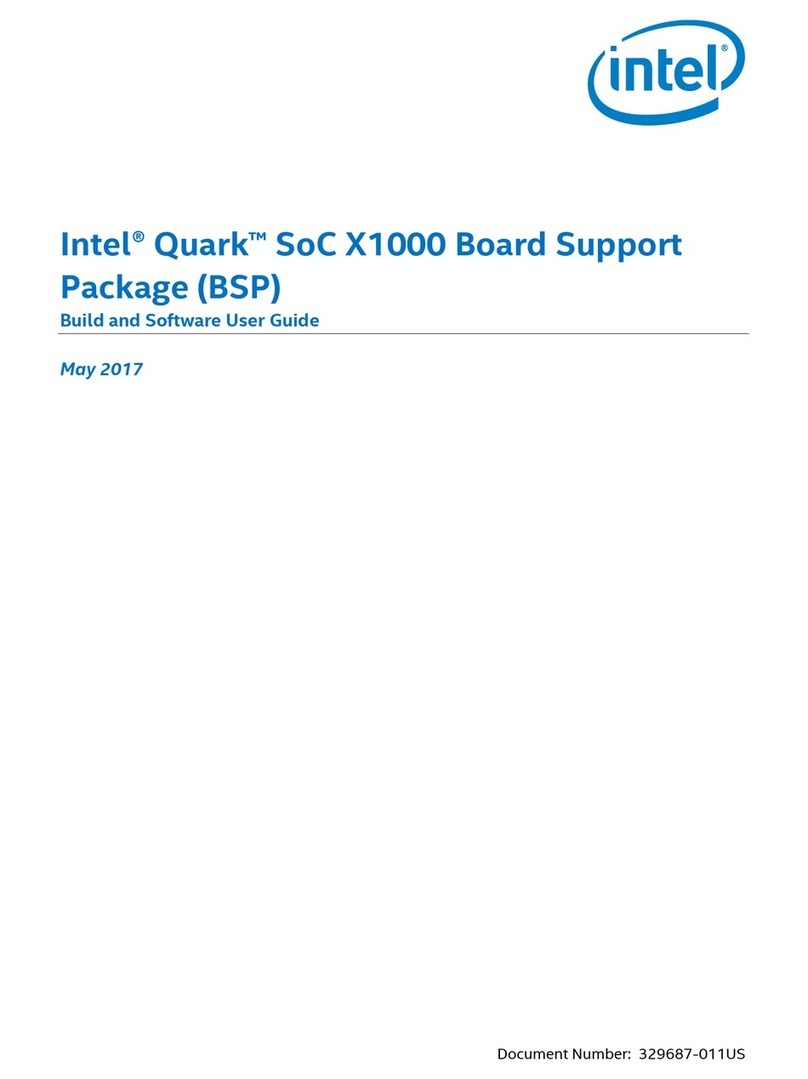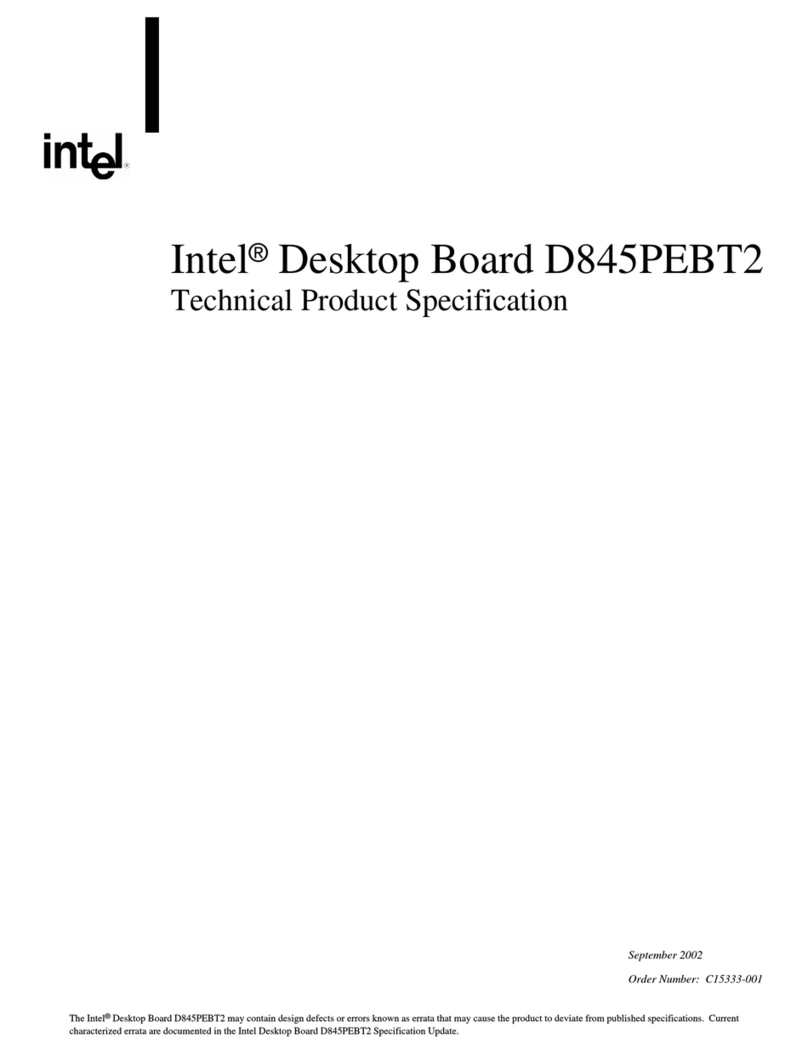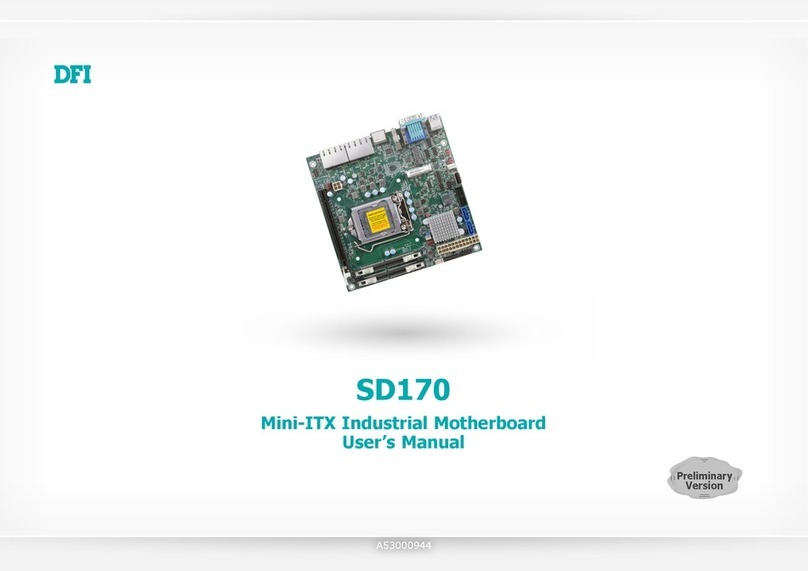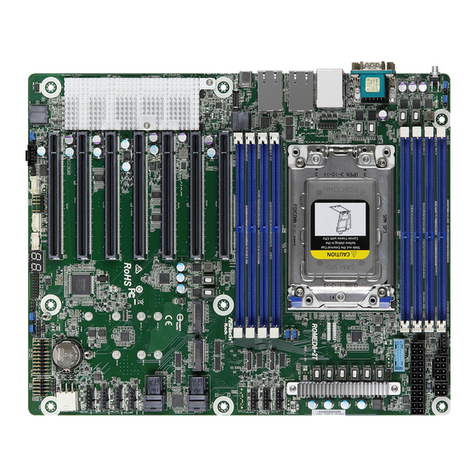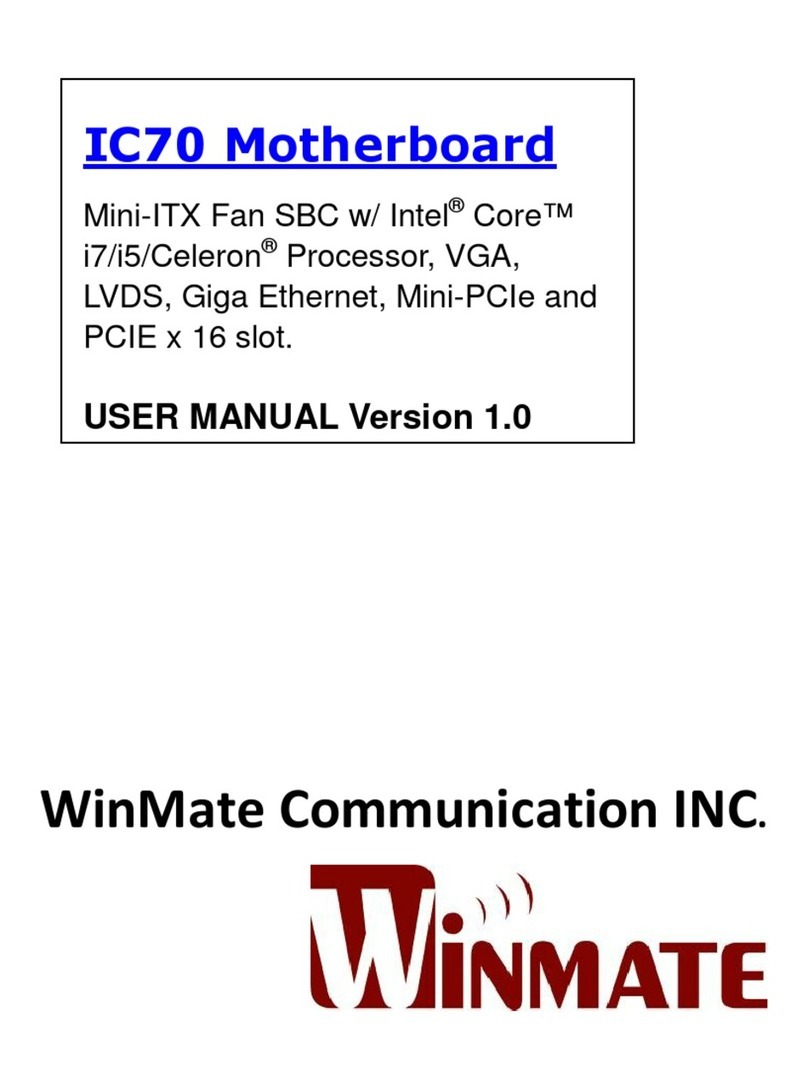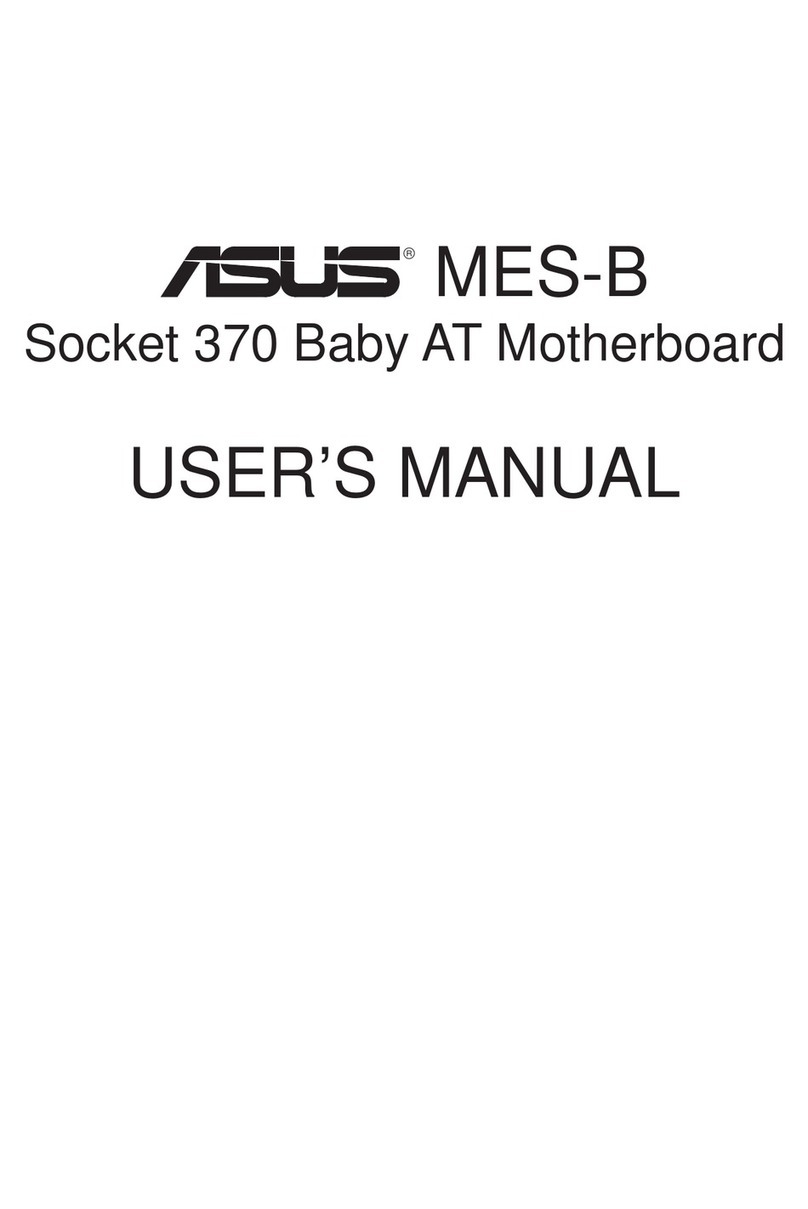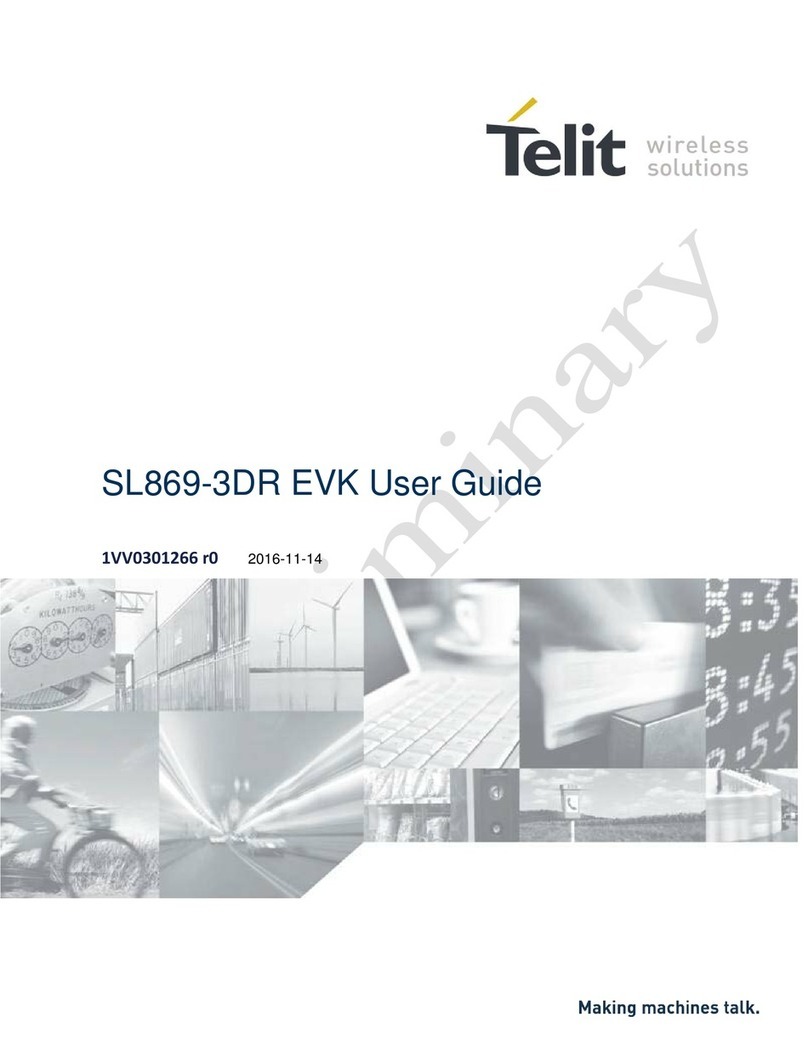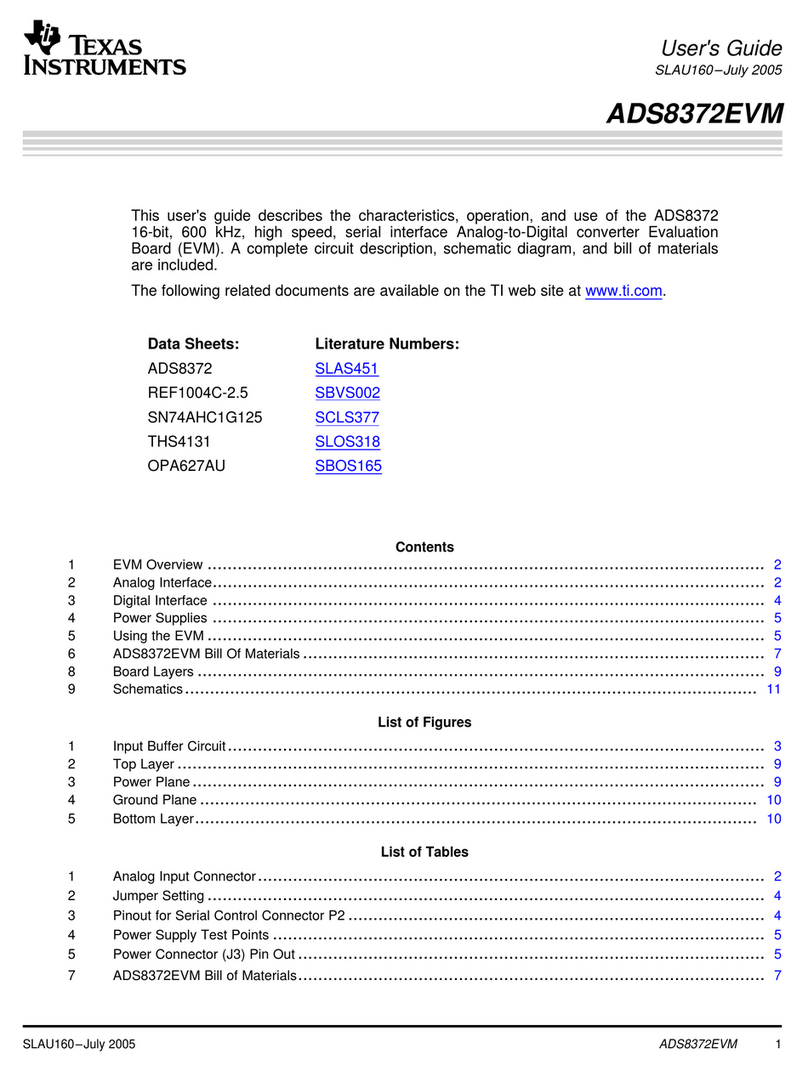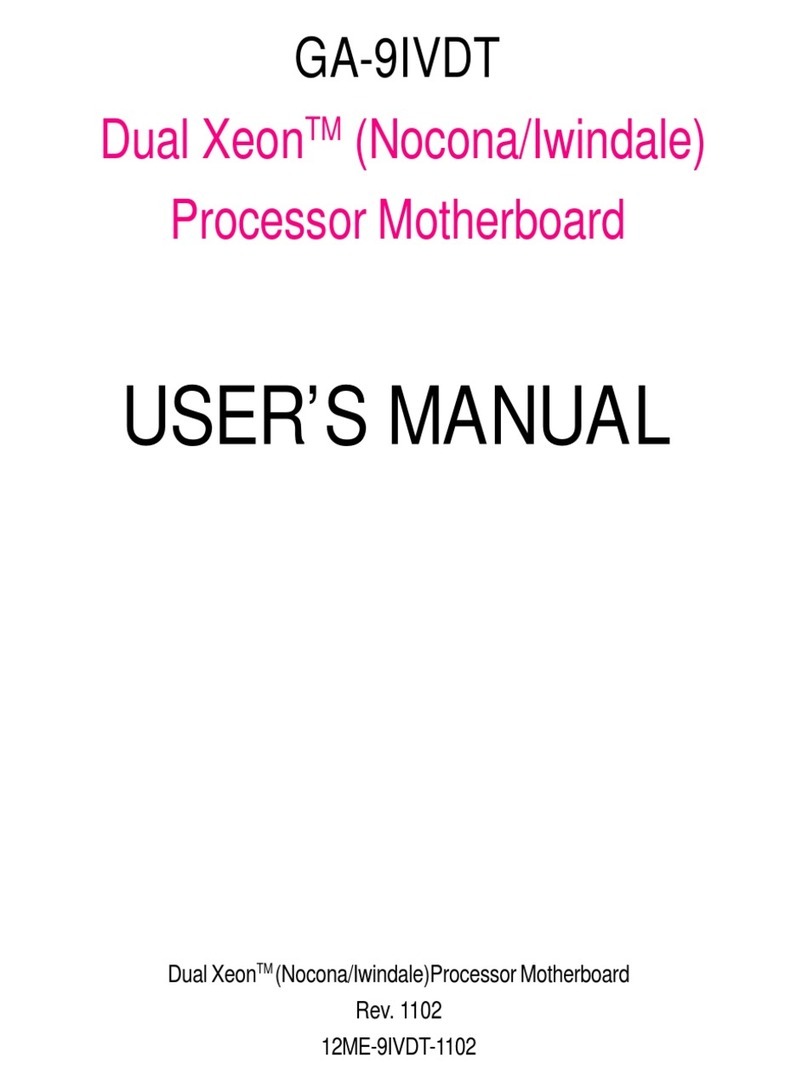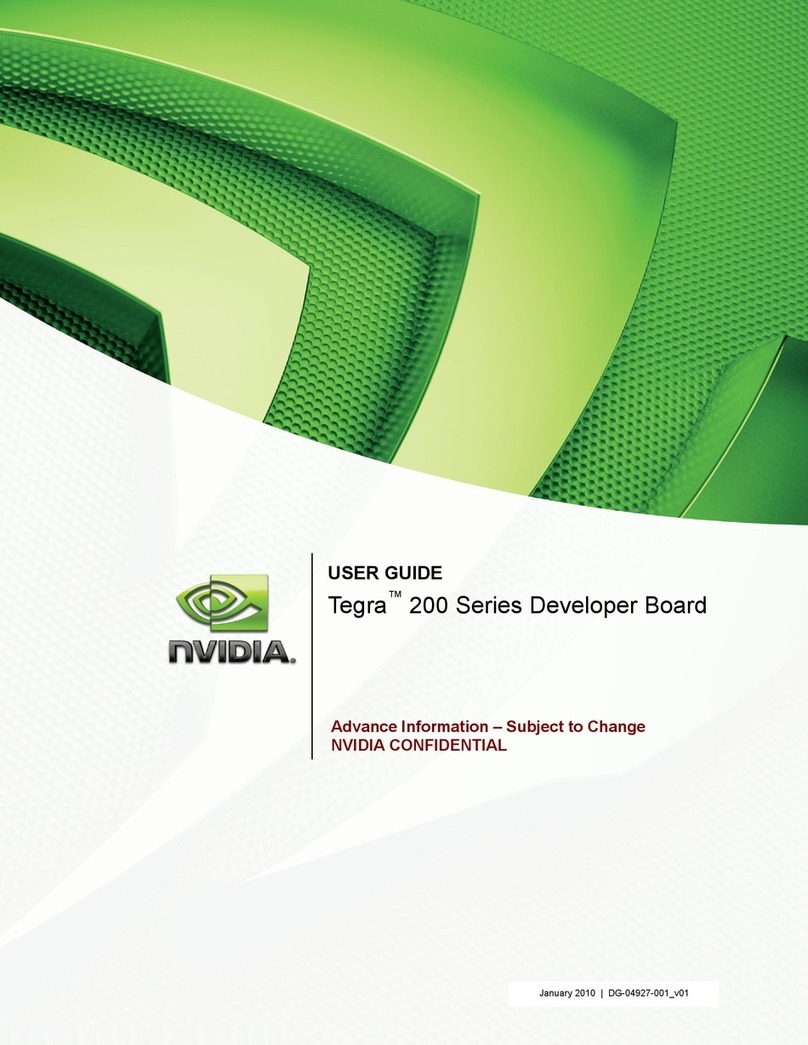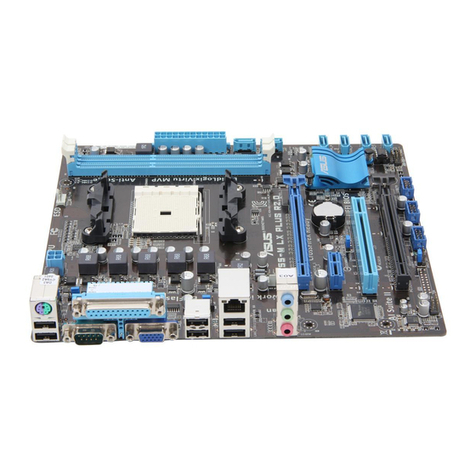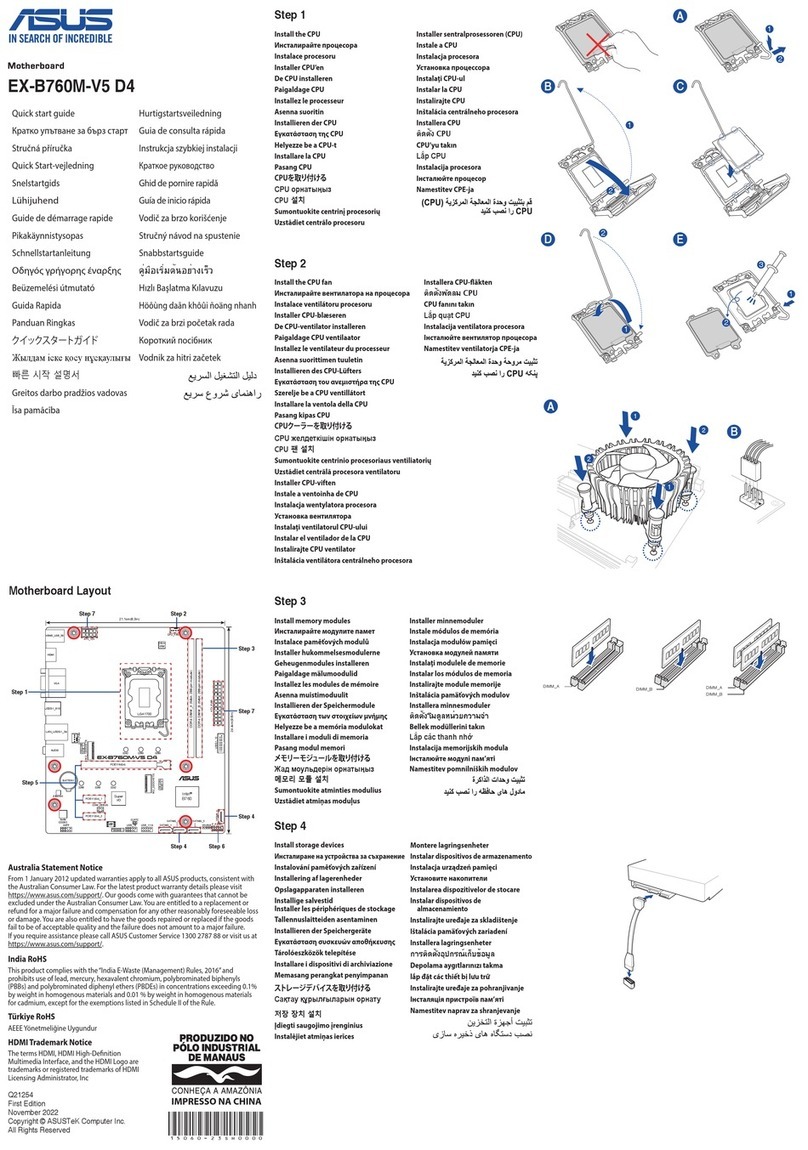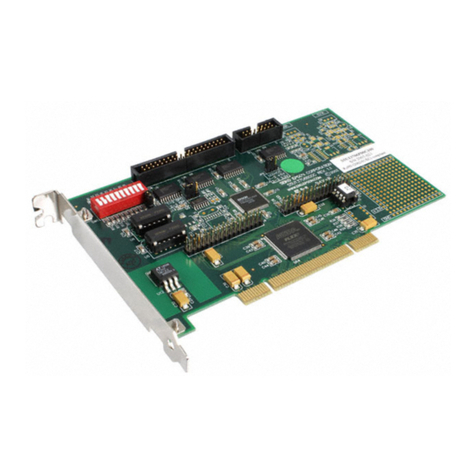
Intel Desktop Board DG965RY Technical Product Specification
vi
2.6 DMA Channels................................................................................. 47
2.7 PCI Interrupt Routing Map ................................................................ 47
2.8 Connectors and Headers................................................................... 48
2.8.1 Back Panel Connectors .......................................................... 49
2.8.2 Component-side Connectors and Headers ................................ 50
2.9 Jumper Block .................................................................................. 58
2.10 Mechanical Considerations ................................................................ 59
2.10.1 Form Factor......................................................................... 59
2.10.2 I/O Shield ........................................................................... 60
2.11 Electrical Considerations................................................................... 61
2.11.1 DC Loading.......................................................................... 61
2.11.2 Fan Header Current Capability................................................ 61
2.11.3 Add-in Board Considerations .................................................. 62
2.11.4 Power Supply Considerations ................................................. 62
2.12 Thermal Considerations.................................................................... 63
2.13 Reliability ....................................................................................... 65
2.14 Environmental ................................................................................ 65
3Overview of BIOS Features
3.1 Introduction ................................................................................... 67
3.2 BIOS Flash Memory Organization....................................................... 68
3.3 Resource Configuration .................................................................... 68
3.3.1 PCI Autoconfiguration ........................................................... 68
3.3.2 PCI IDE Support................................................................... 69
3.4 System Management BIOS (SMBIOS)................................................. 69
3.5 Legacy USB Support ........................................................................ 70
3.6 BIOS Updates ................................................................................. 70
3.6.1 Language Support ................................................................ 71
3.6.2 Custom Splash Screen .......................................................... 71
3.7 BIOS Recovery................................................................................ 71
3.8 Boot Options................................................................................... 72
3.8.1 CD-ROM Boot ...................................................................... 72
3.8.2 Network Boot....................................................................... 72
3.8.3 Booting Without Attached Devices........................................... 72
3.8.4 Changing the Default Boot Device During POST ........................ 72
3.9 Adjusting Boot Speed....................................................................... 73
3.9.1 Peripheral Selection and Configuration..................................... 73
3.9.2 BIOS Boot Optimizations ....................................................... 73
3.10 BIOS Security Features .................................................................... 74
4Error Messages and Beep Codes
4.1 Speaker ......................................................................................... 75
4.2 BIOS Beep Codes ............................................................................ 75
4.3 BIOS Error Messages ....................................................................... 75
4.4 Port 80h POST Codes ....................................................................... 76
